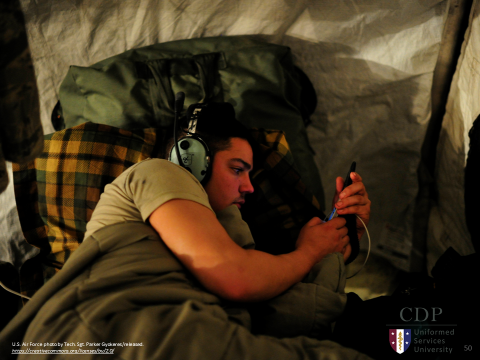
Brief Description:
This two-day workshop provides training in the assessment of military-related sleep disturbance and treatment of insomnia via Cognitive Behavioral Therapy for Insomnia (CBT-I), an evidence-based approach to treating sleep problems. The workshop begins with a broad foundation of normal sleep, including sleep mechanisms and theories, which builds to instruction on sleep-focused differential assessment with a focus on functional analysis. From this perspective, we explore the etiology of insomnia and introduce clinical interventions within a step-by-step CBTI protocol. Experiential and interactive elements develop practical skills for using Stimulus Control, Sleep Restriction, and cognitive therapy. Military case examples are incorporated to illustrate key concepts and techniques. Participants are expected to engage in case discussion and role-plays in class to practice CBT-I techniques, and attendance both days is required.
Note: This presentation can be presented face-to-face or as a webinar.
Learning Ojectives:
- Articulate the prevalence of insomnia experienced by military personnel.
- Teach patients the Two-Process (Homeostatic & Circadian) Model of Sleep.
- Evaluate the four stages of sleep.
- Perform sleep-focused differential assessment.
- Plan an appropriate course of CBT-I treatment based on individualized case conceptualization.
- Incorporate recommended subjective sleep measures into assessment.
- Discriminate between subtypes of insomnia and the symptoms associated with such sleep disturbance.
- Communicate basic sleep principles and sleep hygiene to patient using psychoeducation.
- Score a patient’s baseline sleep log including calculations of sleep efficiency.
- Apply principles of stimulus control to patients with insomnia.
- Calculate sleep data to prescribe bedtime and wake time schedule using sleep restriction.
- Recommend strategies for implementing individual and group CBT-I.
- Employ adaptations of standard cognitive approaches to patients with insomnia.
- Justify the role of CBTI in cases of insomnia with co-morbidities.
